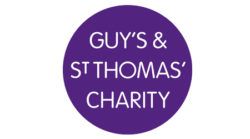Innovative research dissemination
Kaleidoscope worked with UCL to start fresh conversations on how to achieve successful system change in the NHS. The methods used provide a new way to share knowledge between research, practice and policy.
The challenge
Examples of large-scale change which have been successful in the past offer an untapped resource for those leading transformation in the present. Such case studies not only provide insights for their specific clinical area, but also wider lessons across the NHS.
Research led by University College London had dissected the process of reconfiguring stroke services in London and Greater Manchester. This had been shared widely within those working within stroke service change, yet the findings were not well known beyond the specific clinical area. There was an opportunity to advance the discussion of major system change by exploring the implications of this study for system-wide change in different settings in the NHS in England.
Our approach
Funded by the National Institute for Health Research, UCL approached Kaleidoscope to lead a different type of research dissemination process.
From March to May 2018, learning from the evaluation of stroke reconfiguration was shared through a set of activities, focused on a number of digital and face-to-face events. Given the breadth of the target audience (including clinicians, managers, academics, policymakers and charities, all from a wide range of clinical areas), the activities were designed to be as accessible and interactive as possible. This included:
- website – to act as a hub for all resources
- face-to-face event – held in London, with a range of speakers and discussions
- digital events – to discuss the research, and international perspectives
- written outputs – including blogs, and an accessible synthesis of event materials
- video outputs – including short vox pop videos, and webinar recording.
A detailed description of the process taken is available in ‘Learning afresh: a case study of a new form of research dissemination’. Resources relating to the project can be found at learningfromstroke.com.
Results
The events included over 110 people joining live, with 85% of attendees coming from outside academia. Two-thirds of the attendees worked for the NHS, spread across provider trusts, national bodies, regional networks, STPs and CCGs. This included managers and clinicians.
From the face-to-face event: 97% of attendees agreed that lessons from stroke reconfiguration had value to other clinical areas, 93% agreed or strongly agreed that they would recommend an event of this type to a friend.
Encouragingly, attendees left the face-to-face event with positivity about the NHS’s ability to do change: 89% of attendees agreed or strongly agreed that the NHS was capable of achieving successful system wide change.
The learningfromstroke.com website hosted a set of existing materials and content relating to the events. Between February 2018 and January 2019, the site received 7,200 unique visitors, with over 13,000 page views. The website now features numerous new resources developed over the course of this project, including blogs, webinars and interviews with event attendees. To maximise its legacy potential, we will continue to update the website so that it includes links to future papers and learning from this research.
Working with Kaleidoscope allowed us to share research findings and engage people in new and creative ways. It wouldn’t have been possible without them!
Naomi Fulop, Professor of Health Care Organisation and Management, UCL Department of Applied Health Research




